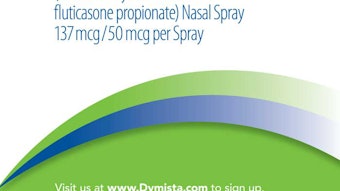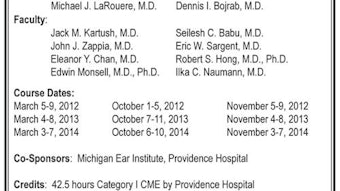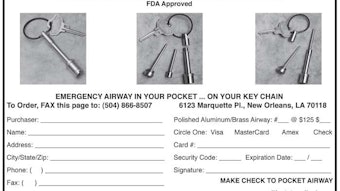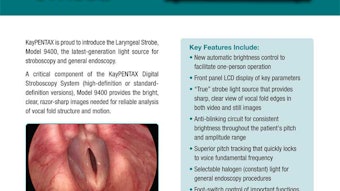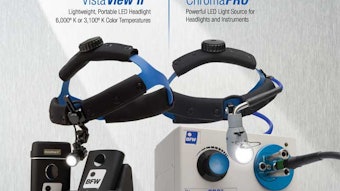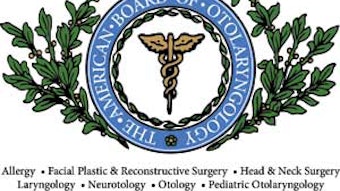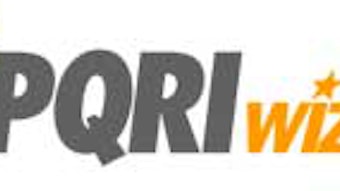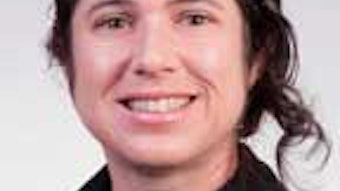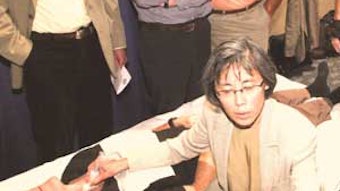How to Be a Better Hospital Board Member
David R. Edelstein, MD, New York, NY Vice Chair, BOG Socioeconomic and Grassroots Committee My real education as a newly minted chair and hospital board member began in 1999 when the New York attorney general sat me down and explained to me why some hospital boards fail. I was there to save an institution, the Manhattan Eye, Ear, and Throat Hospital (MEETH), and he was there to teach me how to be an effective board member. I remember it clearly: “David,” he said, “these are your duties and these are your responsibilities.” It was bad enough that being chair came without instructions, but absolutely nothing in my medical training had prepared me to be a board member. MEETH was established in 1869 as a hospital devoted to the care of the indigent blind and deaf. As chair of ENT, I served as an ex-officio member of the board. Like many physician board members, the other doctors on the board and I seldom attended finance committee meetings, were excused routinely from “executive sessions,” and were called on last to give our opinions. This was a recipe for failure. When reimbursements changed in the late 1990s, the hospital began to experience losses. While reacting to this change was not easy, none of us anticipated the sudden decision by the nonphysician members of the board in “executive session” to close MEETH, abandon its residency programs, sell the real estate, and disperse the assets to an ill-defined plan for satellite clinics. In response, the hospital’s medical staff filed suit to stop the institution’s closure, a court case that would change how I think about and approach the role of being a board member. Duties of Board Members Board members have three duties: care, loyalty, and obedience. The duty of care requires a board member to be familiar with all of the hospital’s activities and finances, read all of the board materials, develop internal controls, and encourage diversity. The duty of loyalty encompasses the need to have an active conflict of interest process, a written code of ethics, and a process to insure that all transactions between the hospital and board members are “fair and legal.” The duty of obedience obligates board members to ensure that all of the hospital’s resources are dedicated to its mission. A few years ago, I was given a book written by Bob Garratt titled The Fish Rots from the Head: The Crisis in our Boardrooms: Developing the Crucial Skills of the Competent Director. This is a thoughtful book that should be required reading for all new board members. The book’s premise is that good board members are made and not born. Appointment to a nonprofit board does not make one omniscient about its business. Part of the reason for confusion on hospital boards is board members often have different backgrounds, perspectives, and training. Lawyers think about risks and liabilities. Business people think about productivity and efficiencies. Donors think about building projects, control of assets, and signage. Doctors think mainly about patients, quality of care, and equipment/resources. Each group believes it is uniquely educated to perform all of the above duties, but without multidisciplinary training and active board development as a whole, most do not succeed. The MEETH story ended with a ruling by the New York State Supreme Court that saved the hospital and led to an eventual merger with a stronger institution. The court’s opinion established a new “MEETH Business Judgment Rule” that implies that nonprofit boards have a higher duty of care than for-profit boards given that nonprofit boards must fulfill a public mission and guard public assets without having either shareholders or the elaborate regulatory and legal oversight frameworks that serve to protect for-profit companies. My experience on the MEETH Board helped me develop what I call the “Edelstein Board Rules for Doctors”: Know the corporate mission well. Read the bylaws and keep them handy. Read the monthly minutes. Follow the money—go to the finance committee meetings. Check the auditors. (Do you know what they really do?) Have perfect attendance. Be prepared to talk about the patient’s perspective and the role of healthcare professionals at every meeting. Explain how integrated healthcare should occur. Provide medical knowledge and presume that the board knows little about medicine. Beware if the only doctors on the board are there “ex-officio” and, consequently, removable at any time without cause. Doctors are trained to give bad news, and boards need to hear their perspectives. Remember the hospital only succeeds with three strong limbs like a three-legged stool—competent administrators, involved lay board members, and doctors who are willing to talk and be active board members.
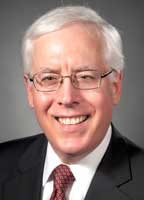
Vice Chair, BOG Socioeconomic and Grassroots Committee
My real education as a newly minted chair and hospital board member began in 1999 when the New York attorney general sat me down and explained to me why some hospital boards fail. I was there to save an institution, the Manhattan Eye, Ear, and Throat Hospital (MEETH), and he was there to teach me how to be an effective board member. I remember it clearly: “David,” he said, “these are your duties and these are your responsibilities.” It was bad enough that being chair came without instructions, but absolutely nothing in my medical training had prepared me to be a board member.
MEETH was established in 1869 as a hospital devoted to the care of the indigent blind and deaf. As chair of ENT, I served as an ex-officio member of the board. Like many physician board members, the other doctors on the board and I seldom attended finance committee meetings, were excused routinely from “executive sessions,” and were called on last to give our opinions. This was a recipe for failure. When reimbursements changed in the late 1990s, the hospital began to experience losses. While reacting to this change was not easy, none of us anticipated the sudden decision by the nonphysician members of the board in “executive session” to close MEETH, abandon its residency programs, sell the real estate, and disperse the assets to an ill-defined plan for satellite clinics. In response, the hospital’s medical staff filed suit to stop the institution’s closure, a court case that would change how I think about and approach the role of being a board member.
Duties of Board Members
Board members have three duties: care, loyalty, and obedience. The duty of care requires a board member to be familiar with all of the hospital’s activities and finances, read all of the board materials, develop internal controls, and encourage diversity. The duty of loyalty encompasses the need to have an active conflict of interest process, a written code of ethics, and a process to insure that all transactions between the hospital and board members are “fair and legal.” The duty of obedience obligates board members to ensure that all of the hospital’s resources are dedicated to its mission.
A few years ago, I was given a book written by Bob Garratt titled The Fish Rots from the Head: The Crisis in our Boardrooms: Developing the Crucial Skills of the Competent Director. This is a thoughtful book that should be required reading for all new board members. The book’s premise is that good board members are made and not born. Appointment to a nonprofit board does not make one omniscient about its business.
Part of the reason for confusion on hospital boards is board members often have different backgrounds, perspectives, and training. Lawyers think about risks and liabilities. Business people think about productivity and efficiencies. Donors think about building projects, control of assets, and signage. Doctors think mainly about patients, quality of care, and equipment/resources. Each group believes it is uniquely educated to perform all of the above duties, but without multidisciplinary training and active board development as a whole, most do not succeed.
The MEETH story ended with a ruling by the New York State Supreme Court that saved the hospital and led to an eventual merger with a stronger institution. The court’s opinion established a new “MEETH Business Judgment Rule” that implies that nonprofit boards have a higher duty of care than for-profit boards given that nonprofit boards must fulfill a public mission and guard public assets without having either shareholders or the elaborate regulatory and legal oversight frameworks that serve to protect for-profit companies.
My experience on the MEETH Board helped me develop what I call the “Edelstein Board Rules for Doctors”:
- Know the corporate mission well.
- Read the bylaws and keep them handy.
- Read the monthly minutes.
- Follow the money—go to the finance committee meetings.
- Check the auditors. (Do you know what they really do?)
- Have perfect attendance.
- Be prepared to talk about the patient’s perspective and the role of healthcare professionals at every meeting. Explain how integrated healthcare should occur.
- Provide medical knowledge and presume that the board knows little about medicine.
- Beware if the only doctors on the board are there “ex-officio” and, consequently, removable at any time without cause. Doctors are trained to give bad news, and boards need to hear their perspectives.
- Remember the hospital only succeeds with three strong limbs like a three-legged stool—competent administrators, involved lay board members, and doctors who are willing to talk and be active board members.


